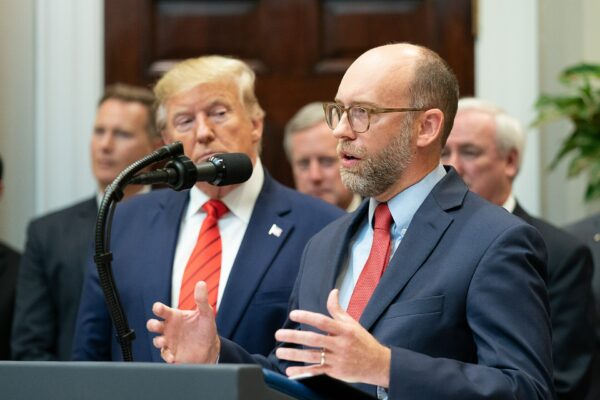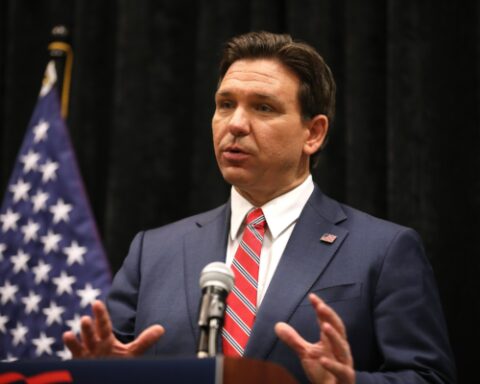Russ Vought, President Donald Trump’s budget director and longtime ally, announced Friday that the Army Corps of Engineers would be pausing $11 billion in funding for what he described as “lower-priority projects” in Democratic-led cities — including New York, San Francisco, Boston, and Baltimore.
Posting the decision on X, Vought wrote that “the Democrat shutdown has drained the Army Corps of Engineers’ ability to manage billions of dollars in projects,” adding that the agency would provide “more information to come.” The move signals a tightening of federal spending and a willingness by the administration to confront what it views as the fiscal mismanagement of America’s most liberal urban centers.
In early October, President Trump appeared to praise Vought’s austerity drive, likening him to “the Grim Reaper” in a Truth Social video celebrating recent cuts and firings across the federal bureaucracy. The president has made no secret of his belief that a leaner government — one focused on curbing what he sees as wasteful Democratic spending — is central to restoring balance in Washington.
Both Trump and Vought have emphasized that their reductions are targeted primarily at programs backed by Democratic officials. “That’s the way it works,” the president said during a recent Cabinet meeting. “They wanted to do this, so we will give them a little taste of their own medicine.” His remarks reflected a political calculus as much as a fiscal one — a belief that Democrats should bear the brunt of a shutdown they, in the administration’s view, helped create.
Vought, for his part, has been outspoken about reshaping the federal workforce and budget priorities. During an appearance on The Charlie Kirk Show on Wednesday, he said, “We’ll probably end up being somewhere north of 10,000,” referring to the number of federal employees expected to be dismissed. The statement underscored the scale of the administration’s push to reduce what it describes as bloated bureaucracies resistant to reform.
Shortly after Vought’s comments, a federal judge in San Francisco issued a temporary injunction blocking the layoffs, citing concern about the “human cost” of widespread terminations. The ruling was celebrated by Democratic leaders in California, but it highlighted the ongoing tension between the Trump administration’s cost-cutting agenda and the judiciary’s cautious approach to sweeping federal reforms.
Trump and his aides have continued to assign blame for the government shutdown squarely to Democrats, arguing that their priorities — particularly around immigration and social spending — have obstructed serious budget negotiations. The president has accused Democrats of attempting to “divert taxpayer funds to provide health care for undocumented immigrants,” a charge his critics dismiss as unsubstantiated but one that resonates with many voters frustrated by the direction of federal policy.
House Speaker Mike Johnson echoed the administration’s frustration, pointing to the nationwide “No Kings Day” protests against Trump as emblematic of what he called Democratic obstruction. “That spectacle,” Johnson said, “is the reason the Democrats have refused to reopen the government.”
Together, the moves by Vought and Trump signal a broader reshaping of federal priorities — one that rewards fiscal restraint and places America’s sprawling, Democrat-led bureaucracies on notice.






